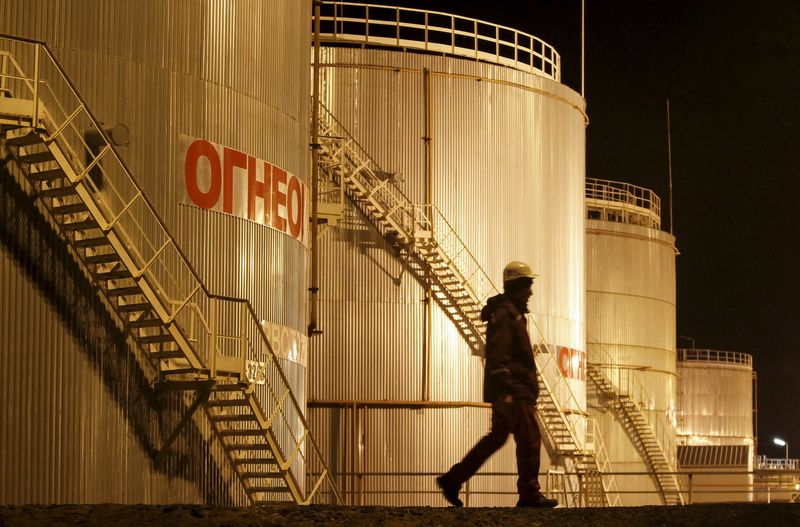By Barani Krishnan
Investing.com - Oil prices fell 2% on Thursday, giving back some of this week’s heady gains, as Covid-19’s Omicron variant returned to the headlines and as Chinese refiners apparently balked at higher prices demanded for crude to be delivered from January by the Saudis.
From Europe to Asia, governments reinstated restrictions to limit the spread of the latest coronavirus strain, with Britain ordering people to work from home again, Denmark closing schools early and limiting hours for restaurants and bars and China halting tourist trips from Guangdong.
It was the latest measure of frustration for oil bulls who thought Omicron was no longer a factor in markets after assuring talk over the weekend by global medical experts, including top U.S. virologist Dr. Anthony Fauci, that the variant’s effects might not be as severe as initially feared. Pfizer (NYSE:PFE) and its partner BioNTech SE (NASDAQ:BNTX) had also said this week that three doses of their vaccine could neutralize Omicron.
But news on Thursday showed that Omicron was 4.2 times more transmissible than the Delta variant, which led to a resurgence in hospitalizations and deaths around the world. What’s not known is the fatality rate of the new strain, though its spread rate was enough to cause fears.
“For the unvaccinated population, Omicron may be a fast wave and could support the idea that the short-term hit to crude demand will be quick and fast,” said Ed Moya, analyst at online trading platform OANDA.
West Texas Intermediate, the benchmark for U.S. crude, settled down $1.40, or 1.9%, at $74.42 a barrel. WTI gained about $6, or nearly 9%, for the first three days of this week. Last week, it hit a four-month low of $62.48 last week on Omicron-related fears, after a seven-year high of $85.41 in mid October.
London-traded Brent, the global benchmark for oil, finished Thursday’s session down $1.40, or 1.9%, at $74.42. Brent fell to $65.80 last week, from a 2014 high of $86.70 in mid-October.
Higher Saudi prices for January, lower overall demand for crude amid the Omicron uncertainty, the Chinese crackdown on illicit practices at its independent refiners, and refinery maintenance season starting in late Q1 2022 have resulted in Asian refiners abstaining from extra Saudi crude supply for loading in January.
Crude prices were also pressured by a report from Bloomberg that refiners in China have not asked for additional supply from the world’s largest oil exporter, Saudi Arabia, above the term supplies under the long-term contracts, after Riyadh hiked prices for January.
The Saudi “Arab light grade” crude for Asian customers will cost $3.30 a barrel above a benchmark from January, 60 cents more than in December, the kingdom’s state-owned oil firm Saudi Aramco (SE:2222) said on Monday. Aramco also upped by 80 cents the broader pricing on its January-bound crude to Asia and America.
Oil was also affected by a selloff in stock markets fearing a more rapid U.S. rate hike than before, after a stronger-than-expected U.S. weekly jobs report.
U.S. jobless claims came in at 184,000 for last week, the lowest in more than 50 years, as the employment market resumed its dynamic recovery from the coronavirus pandemic, Labor Department data showed Thursday. The Federal Reserve has been watching employment numbers closely to determine when it has to hike interest rates to cool inflation running at 30-year highs.
